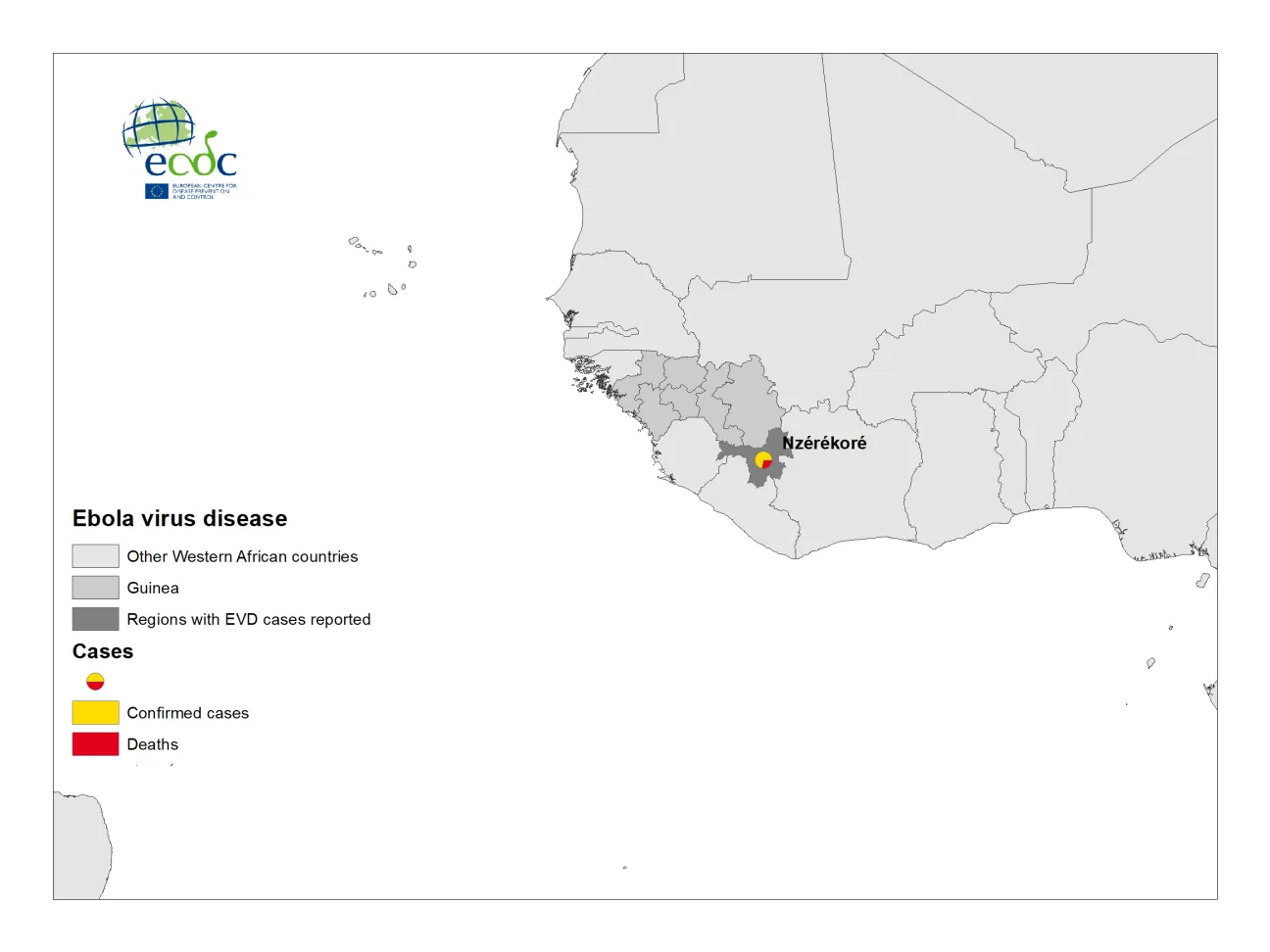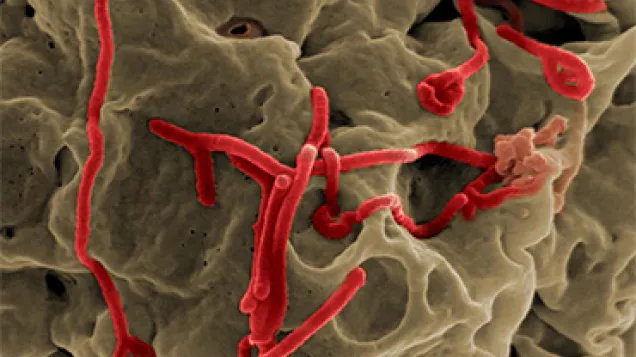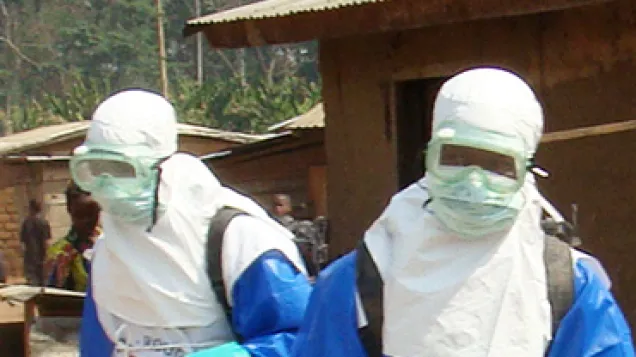Ebola virus disease in Nzérékoré – Guinea

On 14 February 2021, an Ebola virus disease (EVD) outbreak was declared in the rural area of Gouéké in N’Zerekore region, Guinea, by national health authorities. Three laboratory-confirmed cases have been confirmed by the national reference laboratory - the first confirmed cases reported since 2016.
According to the World Health Organization’s Regional Office for Africa and the Ministry of Health of Guinea, on 28 January 2021, a healthcare worker from Goueké Health Center died. Six people who attended his funeral on 1 February 2021 later began to show Ebola-like symptoms (diarrhoea, vomiting and bleeding). Two of these cases have since died and the other four have been hospitalised.
According to Agence Nationale de Sécurité Sanitaire-ANSS, one of the four hospitalised cases is currently in isolation at a healthcare facility in Conakry, while the other three have been isolated in Gouéké, N’Zerekore region.
Samples from the confirmed cases have been sent to the Institut Pasteur in Senegal for full genome sequencing in order to identify the strain of the Ebola virus.
Response measures have been initiated and the World Health Organization (WHO) is supporting Guinea in procuring the EVD vaccine. As the outbreak is located in a border area, WHO is also liaising with health authorities from Liberia and Sierra Leone to enhance surveillance activities in their districts bordering Guinea, as well as strengthening their testing capacity and conducting surveillance at health facilities. WHO is also in contact with Côte d’Ivoire, Mali, Senegal and other countries at risk in the sub-region. According to media sources, Sierra Leone has upgraded its health emergency response plan and the border with Guinea has been closed.
ECDC assessment
There is a risk that cases may flare up in Guinea. The information currently available is insufficient to be able to confidently assess the likelihood of further or more widespread transmission. Continuing response measures and follow-up of survivors are essential to detect and interrupt transmission early on. Response measures may be jeopardised by other outbreaks in the country.
Significant developments have been made in the prevention of Ebola virus disease, with two vaccines now licensed for use in several countries. Assuming that healthcare workers (including EU/EEA citizens that could be deployed in response to this outbreak) are vaccinated and adhere to recommended precautionary measures, the risk of them becoming infected is low.
For other EU/EEA citizens living in or travelling through Guinea, the likelihood of exposure is very low, as is the likelihood of introduction and further spread of the Ebola virus within the EU/EEA.
Share this page


